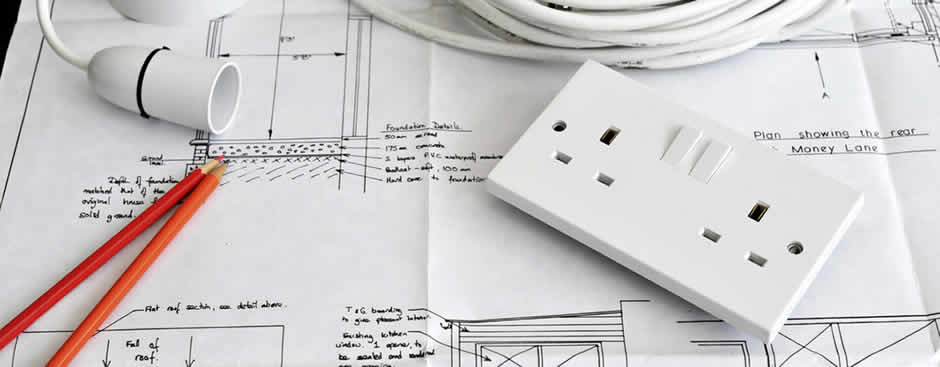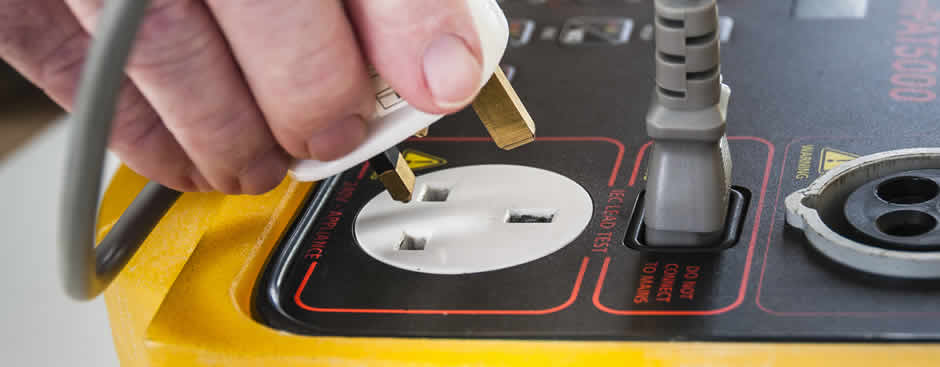PAT Testing FAQ's
Thanks to all of you who have asked questions which we have posted here.
Please contact us to ask any questions that are not answered here.
- How far would you travel to carry out PAT Testing?
- What is PAT Testing?
- What is a Portable Electrical Appliance?
- What happens if an item fails PAT Testing?
- Is it Law that portable electrical equipment is PAT Tested?
- How often do we need our electrical appliances PAT Testing?
- How much does PAT Testing cost?
- Is it my responsibility to have Leased Equipment PAT Tested?
- What equipment should be PAT Tested?
- I have specialised equipment that cannot be switched off - how can this be PAT Tested?
- How long does PAT Testing take?
- What is included in our PAT Testing service?
- What qualifications are required to carry out PAT Testing?
- What assurances have we that all appliances have been tested?
- Could PAT Testing damage my equipment?
- Do new electrical appliances need PAT Testing?
- Does equipment need to be switched off for PAT Testing?
- Are there any hidden extras I could be charged for?
- What Certification will I receive after PAT Testing?
- Is Insurance Cover affected by PAT Testing?
1. How far would you travel to carry out PAT Testing?
We are based in Kent with engineers working from home locations throughout Kent, we travel to Kent, S London, Sussex and Surrey.
2. What is PAT Testing?
PAT (Portable Appliance Testing) is a routine safety check for electrical equipment. UK Health & Safety regulations require that regular testing is performed - "a requirement of maintenance of safety and evidence of routine maintenance of all hand-held, portable and plug-in equipment". The correct term for the PAT Testing process is In-service Inspection & Testing of Electrical Equipment.
3. What is a Portable Electrical Appliance?
A Portable Electrical Appliance refers to any electrical item which can be moved whilst connected to an electrical supply.
4. What happens if an item fails PAT Testing?
Most minor faults can be put right before being tested, eg. incorrect fuse sizes or loose wiring connections. Our engineers will advise you of the best course of action if a failure is more serious.
5. Is it Law that portable electrical equipment is PAT Tested?
The Electricity at Work Regulations places a duty on employers, employees and the self-employed, who are legally responsible for implementing a regular system of maintenance, inspection and testing. This can be managed under any risk assessment at work. It is also a normal insurance requirement that organisations have their electrical equipment routinely tested.
6. How often do we need our electrical appliances PAT Testing?
This depends on the device type, location, use and general condition of your electrical appliances. Generally most businesses will take the view that annual testing is sensible. This helps with insurance liabilities and provides added peace of mind.
7. How much does PAT Testing cost?
It depends on how many electrical items that you have for testing. See PAT Testing to see an approximate pricing guide. The price is normally agreed before we start work.
8. Is it my responsibility for Leased Equipment to be PAT Tested?
Yes, under The Defective Equipment Act, you are responsible for all third party equipment that you use.
9. What equipment should be PAT Tested?
Generally speaking, all equipment fitted with a standard BS1363 plug is covered. This includes PCs, kettles, televisions, microwaves, power tools, washing machines, vacuum cleaners etc.
10. I have specialised equipment that cannot be switched off at any time. How can this be PAT Tested?
Yes. It is not generally possible to carry out a PAT test with the unit switched on. The test invariably involves a thorough inspection of the mains plug and fuse, which is impossible to do without switching the unit off. (However, it is possible for essential equipment such as fileservers that cannot be switched off. These generally have duplicate power supplies, which allow each to be inspected individually, specialised PAT Testing equipment must be used.)
11. How long does PAT Testing take?
An engineer can test between 100 and 200 appliances a day, depending on the type of appliances, their condition and the layout of the premises. (Around 20 tests per hour is a good average.)
12. What is included in our PAT Testing Service?
Per-test pricing includes almost everything needed for typical appliance testing. This includes test reports, labels, minor repairs and re-tests, replacement plugs, fuses etc. Additionally, our engineers carry a number of spare leads, extension cables etc. meaning that should a similar item be beyond repair, we can replace them at your discretion and at reasonable cost, saving you downtime and inconvenient trips to the hardware store.
13. What qualifications are required to carry out PAT Testing?
Only a "competent person" can perform PAT Testing. The Electricity at Work Regulations describe a competent person as having the "necessary skills, qualifications, knowledge and experience to carry out inspection and testing". All our engineers have received not only the theoretical training but are well experienced in this field.
14. How do I know that all appliances have been PAT Tested?
We will offer guidance on the frequency of the PAT testing schedule as part of your risk assessment process. Additionally, our PAT testing equipment records the tests carried out on each appliance, which engineer carried out the testing, each test that has been carried out together with the results, the date, the type of appliance and an appliance identification. The test results are downloaded and are supplied to you as a spreadsheet or database file.
15. Could PAT Testing damage my equipment?
PAT Testing causes no damage to equipment if carried out correctly. Special low-voltage tests are used for appliances containing delicate electronic components, such as PC's. The expertise and training of our engineers, and the use of the latest, highly specified test equipment ensure that damage will not happen.
16. Do new electrical appliances need PAT Testing?
We recommend that all new items should be visually inspected by a qualified person before use and then incorporated into your regular PAT testing routine.
17. Does equipment need to be switched off for PAT Testing?
Yes. It is not possible to carry out PAT Testing without switching the unit off, as a thorough inspection of the mains plug and fuse is involved. However, if it is impractical to switch the power off during working hours, out-of-hours Testing can be arranged.
18. Are there any hidden extras I may be charged for?
Our standard charges include everything needed for typical appliance testing. This includes labels, a reasonable number of minor repairs and re-tests, replacement plugs, fuses etc. For items such as power leads, our engineers carry a number of spares. If these fail the tests, we are able to replace them immediately to avoid downtime, if you wish, for which we would make a small charge.
19. What Certification will I receive after PAT Testing?
In addition to the labels applied to all equipment that has been PAT Tested, all PAT Test results and certificates will be emailed to you in a suitable electronic format. Alternatively a CD ROM or printed hardcopy can be supplied.
20. Is Insurance Cover affected by PAT Testing?
Insurance companies normally assume when giving cover that there is compliance with all necessary regulations. An Insurance Company could reduce, delay or even refuse to pay a claim for damage if it is suspected that this might have been caused by an appliance that has not been PAT Tested.
Contact Us
Contact us or visit us, to allow us to demonstrate our “Can Do“ attitude.
Phone: 01304 611621 or 07749 593 499
Email:
9 Galliard Street, Sandwich, Canterbury, Kent CT13 9BG



